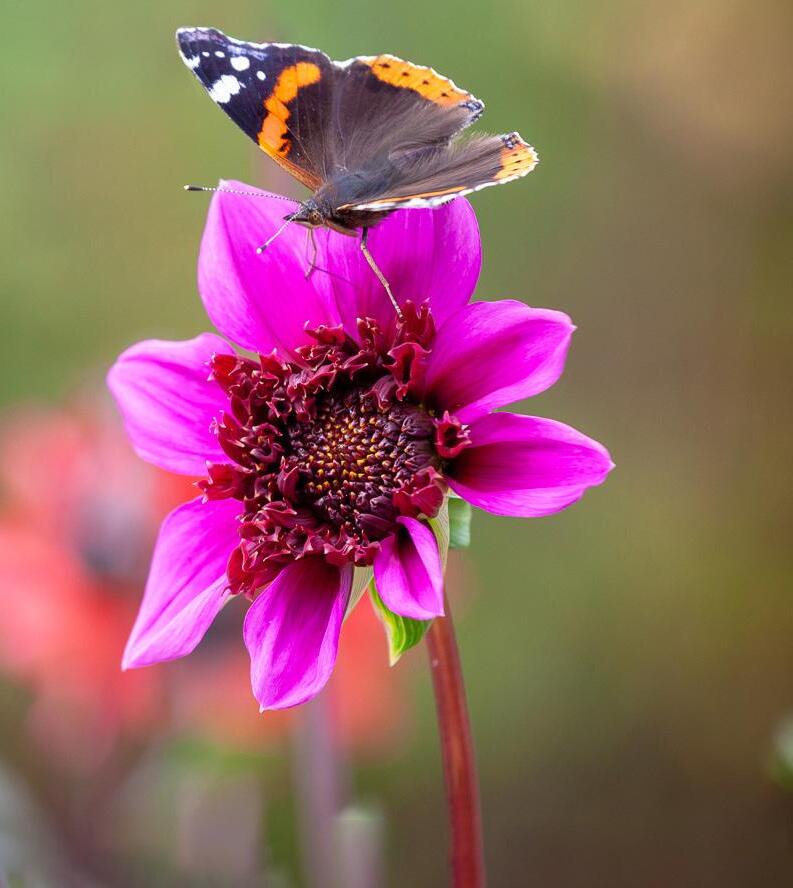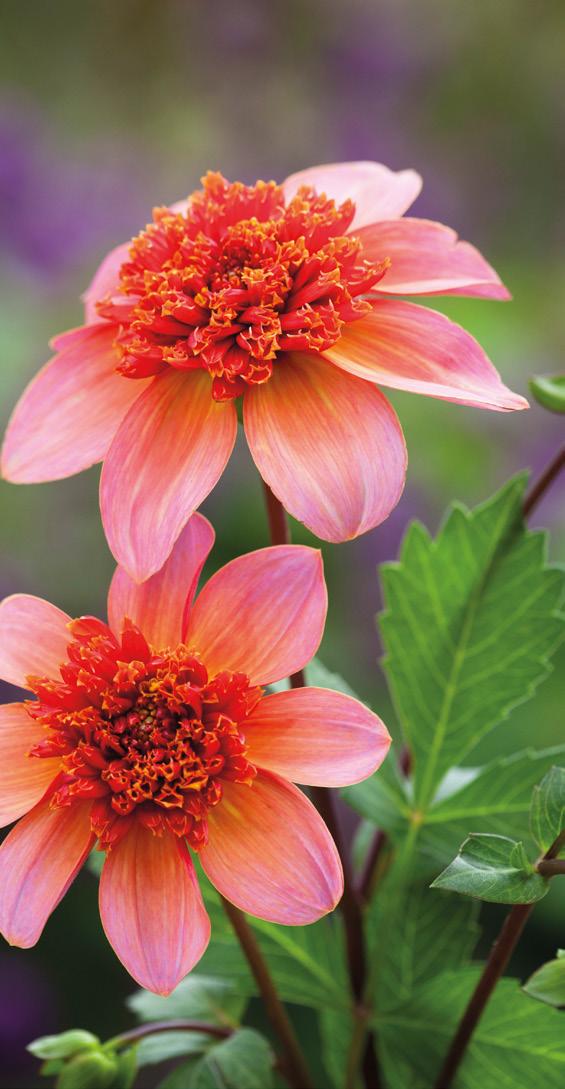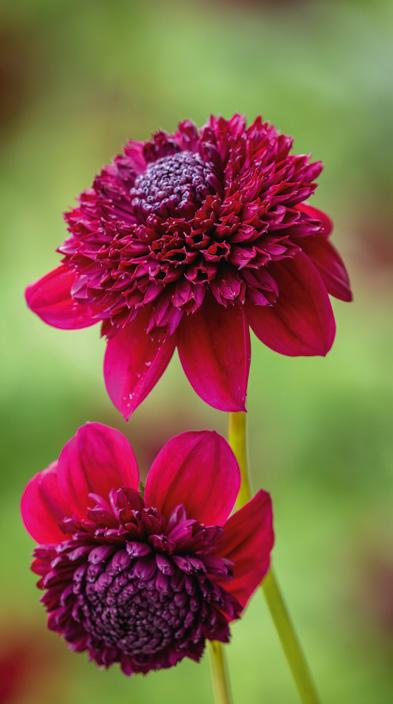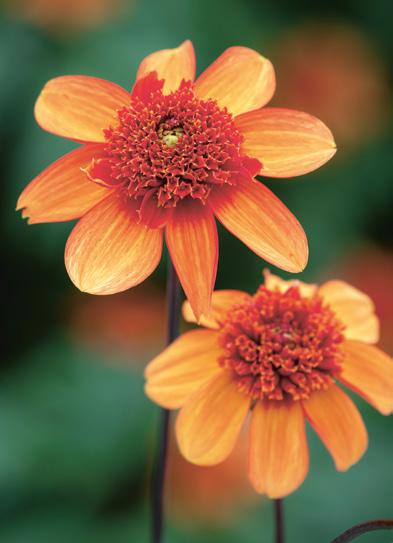
2 minute read
4 ACHILLEA terracotta
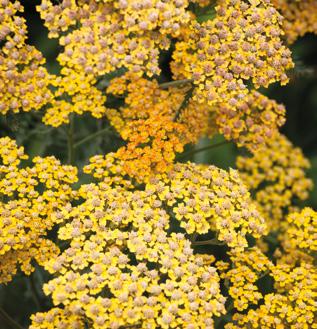
The fantastic thing about yarrows is that they flower for many months at a stretch. These open the colour of terracotta, fading like a lovely antique tapestry as they age.
Advertisement
TYPE : Perennial
SPECIES : Millefolium
ASPECT: Full sun
FLOWERS : June-September
SOIL: Moist but well-drained
HEIGHT : 75cm (30”)
SPREAD : 60cm (24”)
CARE TIPS : Cut back after first flowering to encourage a second flush in late summer. Divide plants every 3 years to rejuvenate.
Other Popular Varieties
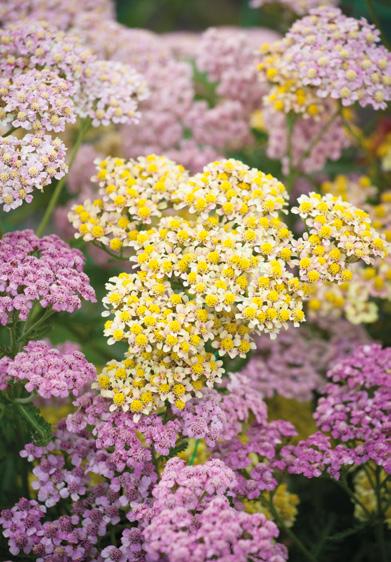
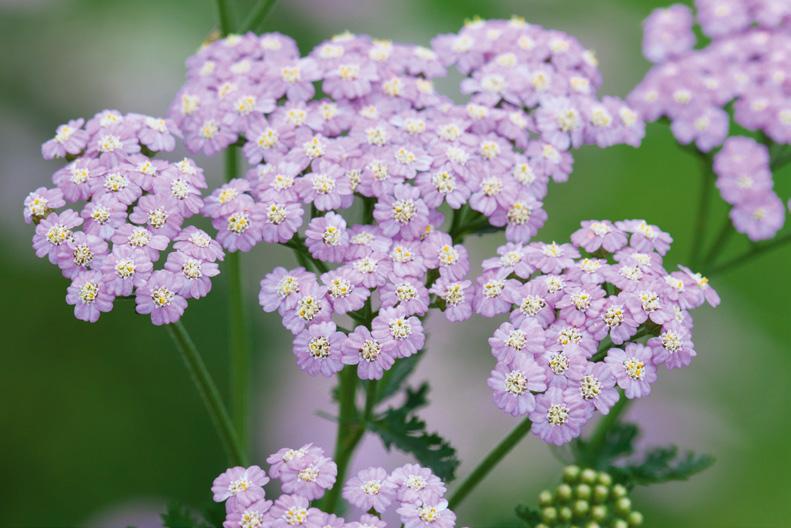
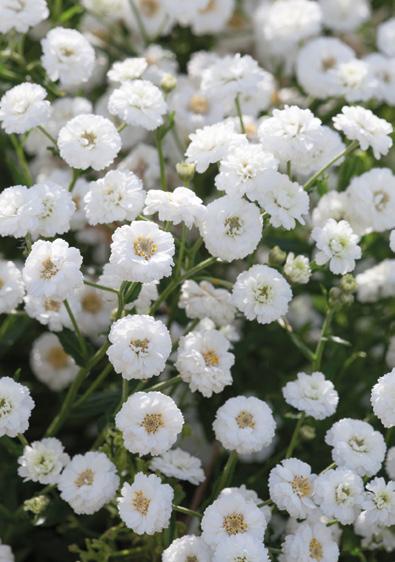
LAVANDULA hidcote 5
The most floriferous of the compact lavenders, with purple-blue flowers. Incredibly reliable and rich in pollen and nectar for much of the summer, so bees and butterflies love it.
Lavender flowers are edible and can be used to add flavour to cocktails, syrups, sorbets, and salads.
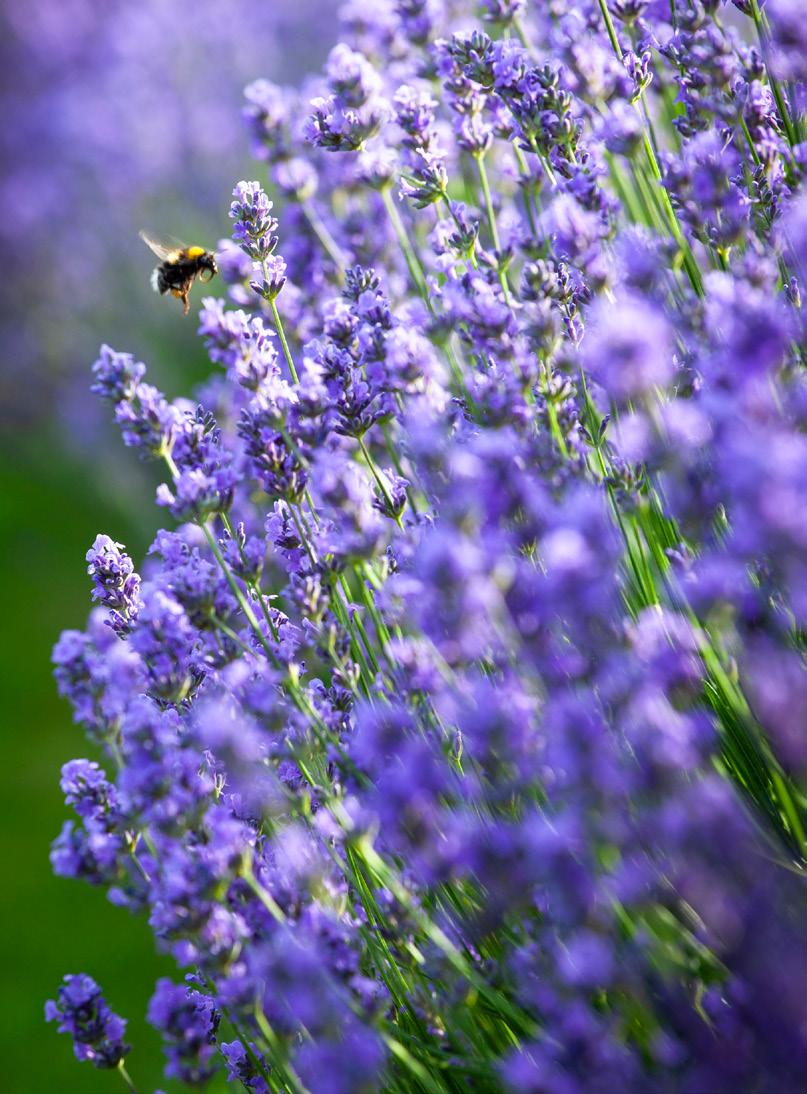
TYPE : Shrub
SPECIES : Angustifolia
ASPECT: Full sun
FLOWERS : June-August
SOIL: Well-drained
HEIGHT + SPREAD : 60cm (24”)
CARE TIPS : Cut back flower spikes in the autumn, but do not cut into the woody stem. Do not overwater, as Lavender dislikes having soggy roots.
TYPE : Perennial
SPECIES : x faassenii
ASPECT: Full sun
FLOWERS : May-September
SOIL: Well-drained
HEIGHT : 30cm (12”)
SPREAD : 45cm (18”)
A perfect compact border edging catmint, so much better than the usual floppy form. Cut back once or twice through the year and it will very quickly flower again.
CARE TIPS : Cut back lightly after flowering to promote a second flush of flowers. Cut back hard in autumn for vigorous new growth in spring. Divide large clumps in spring or autumn.
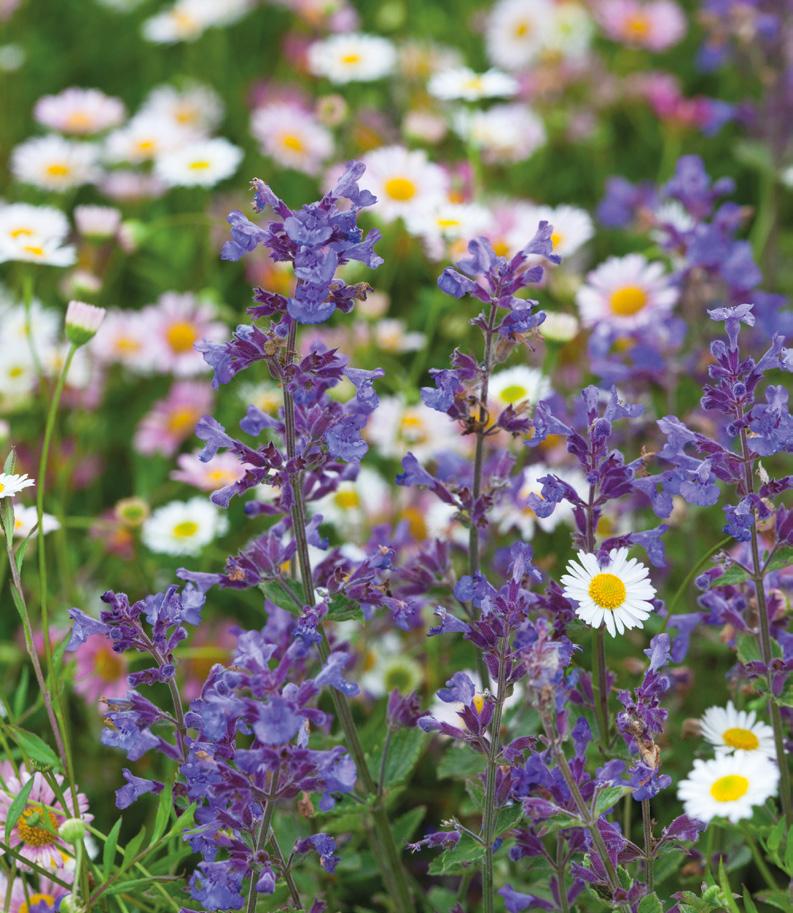
7
ERIGERON profusion
Masses of daisy-like flowers with a hint of pink. Perfect for softening some steps with curtains of daisies, plus you can create a lovely tumbling outside table centre. Erigeron flowers for months self-sowing into all the nooks and crannies. A brilliant value plant which no garden should be without.
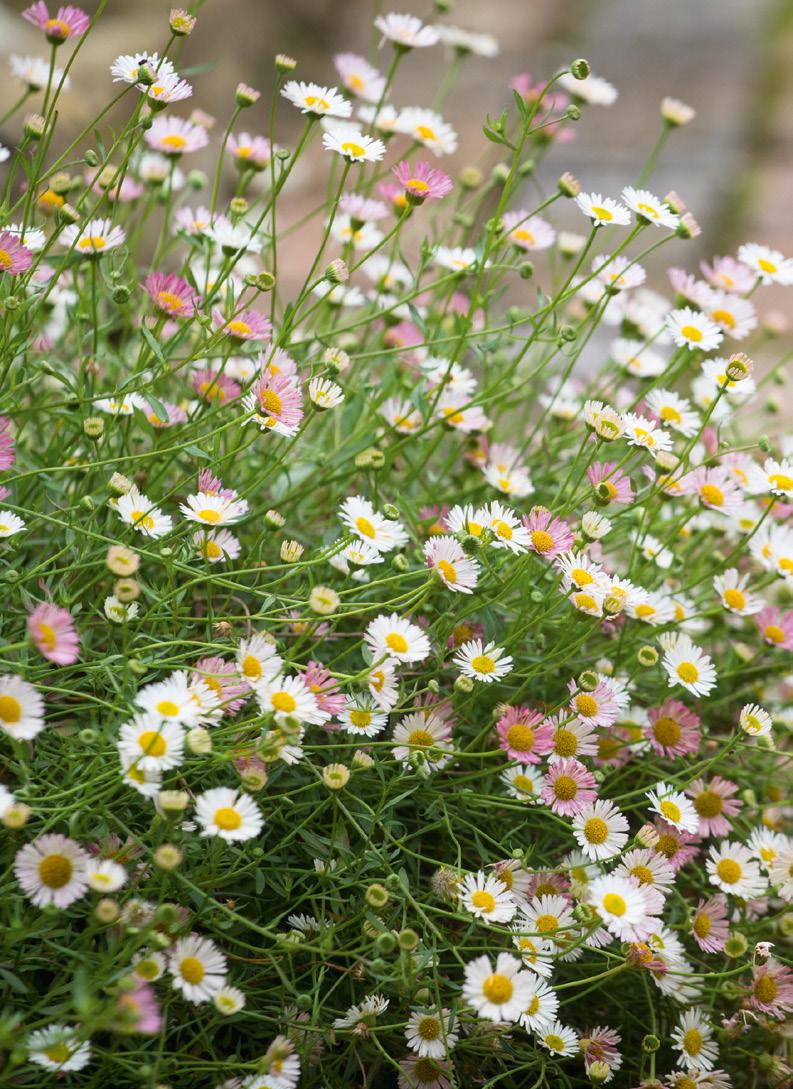
TYPE : Perennial
SPECIES : karvinskianus
ASPECT: Full sun
FLOWERS : April-November
SOIL: Well-drained
HEIGHT : 30cm (12”)
SPREAD : 90cm (36”)
CULTIVATION : Sow under cover FebruaryApril. Sprinkle seed on the surface of seed compost and keep moist on a warm kitchen windowsill, then plant out in May. Or sow direct April-July.
CARE TIPS : Will self-seed and spread with its roots making it perfect for walls and paths. Deadhead to encourage flowering.
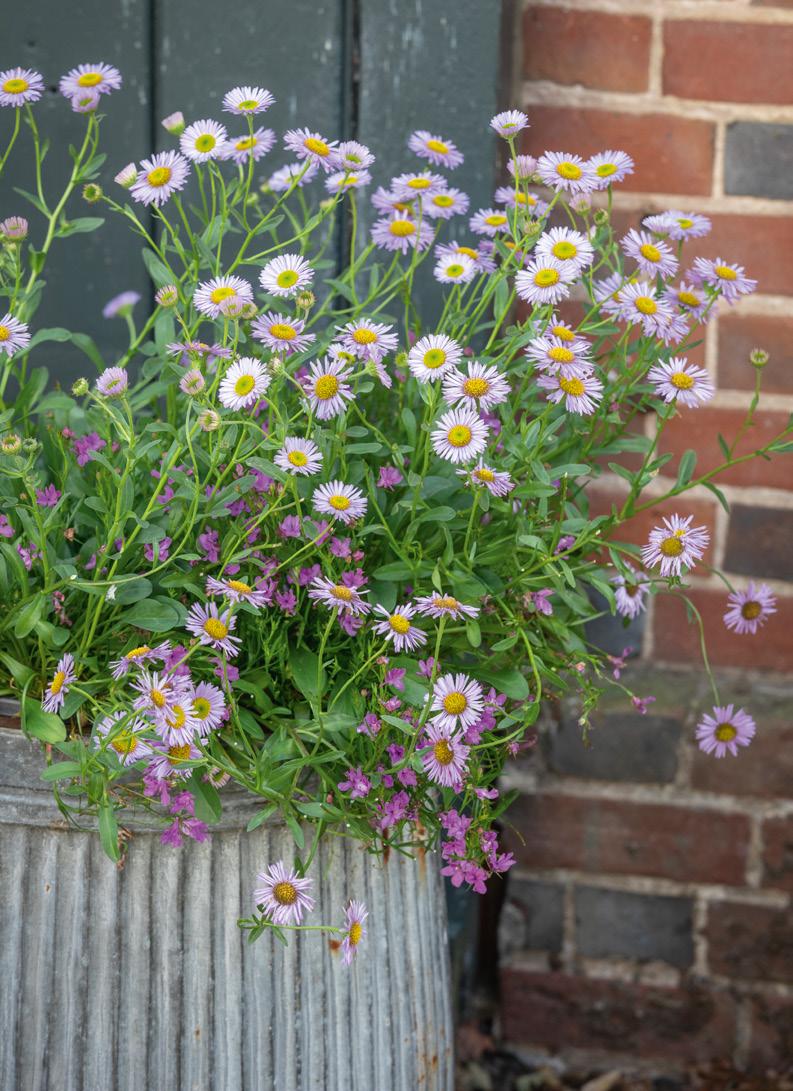
8 SCABIOSA kudo pink
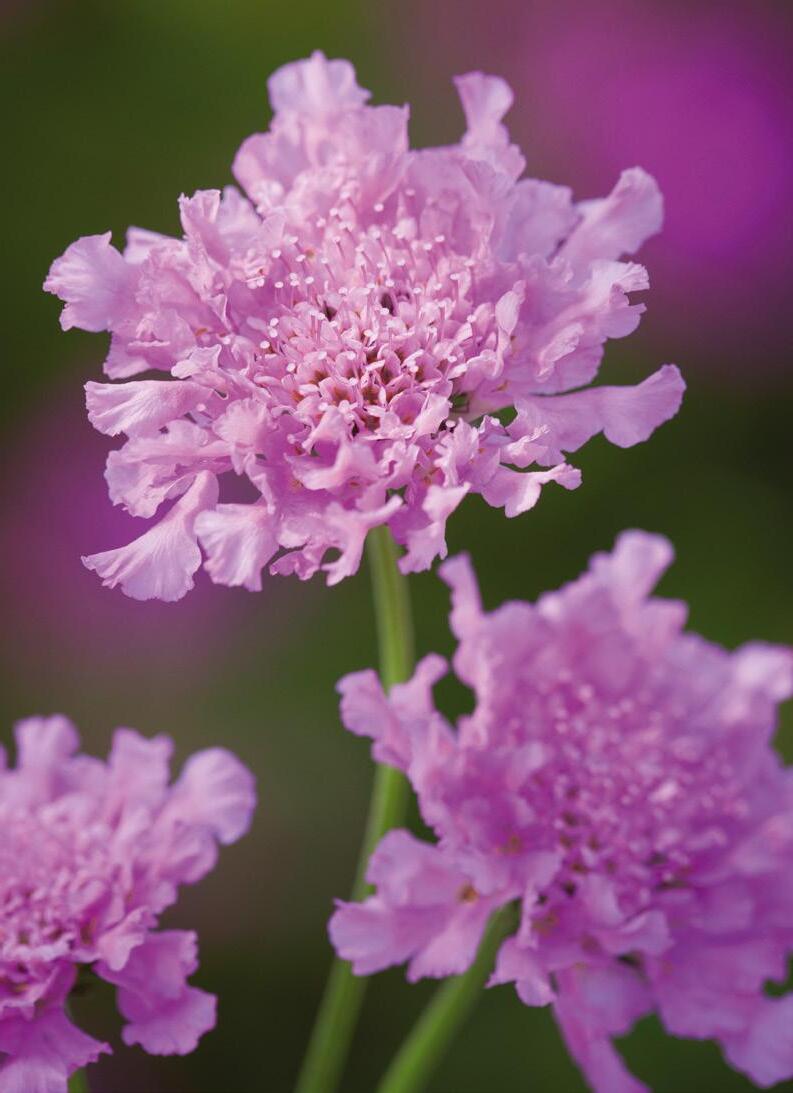
This compact variety is perfect for pots. It is highly floriferous, producing bright pink pincushion flowers from May through to November, and is adored by the bees.
TYPE : Perennial
SPECIES: Incisa
ASPECT: Full sun
FLOWERS : May-November
SOIL: Moist but well-drained
HEIGHT + SPREAD : 30cm (12”)
CULTIVATION : Sprinkle mycorrhizal fungi (Rootgrow) into the base of the planting hole and water well after planting.
CARE TIPS : Deadhead to prolong flowering.
VERBENA bonariensis 9
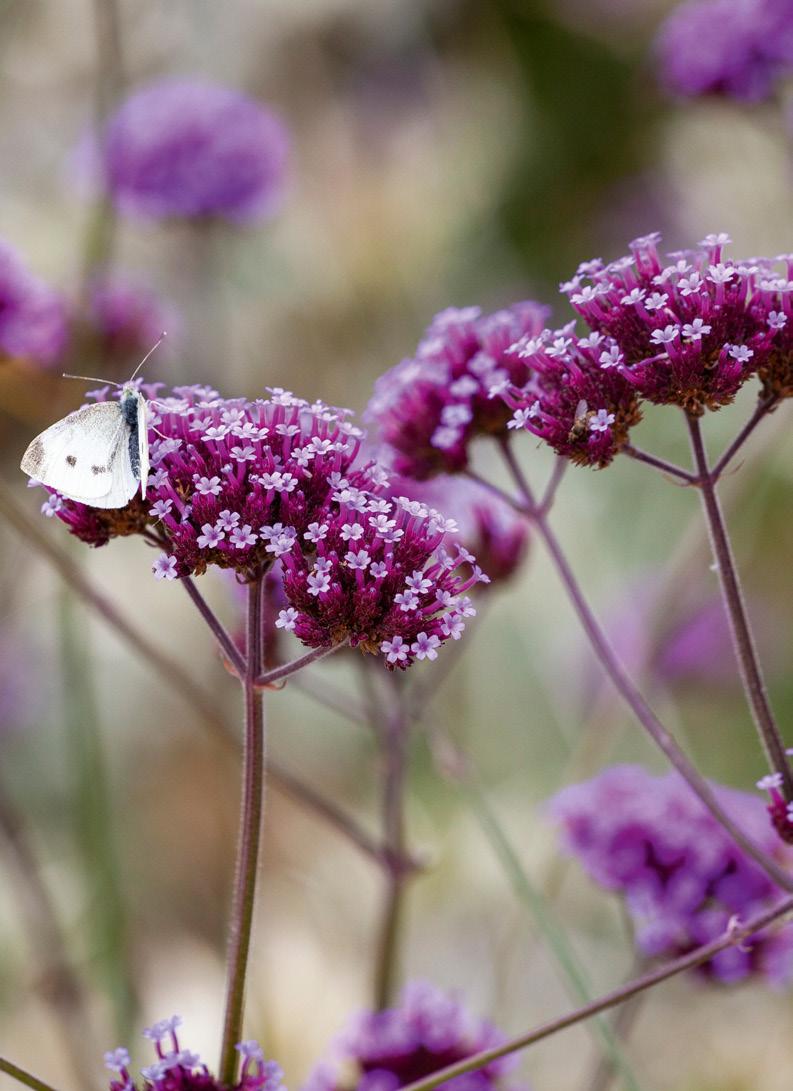
A haze of purple flowers at head height from late summer to autumn, which is a confetti of butterflies the moment there is a glimpse of sun.
TYPE : Perennial
ASPECT: Full sun
FLOWERS : June-November
SOIL: Well-drained
HEIGHT : 1.8m (6ft)
SPREAD : 60cm (24”)
CARE TIPS : Leave the dead stalks until spring which helps protect from cold wet weather and because seeds will be appreciated by visting finches. Protect with a layer of leaf mould or compost mulch in autumn.
Other Popular Anemone Varieties 10
DAHLIA blue bayou
TYPE : Tender Perennial
SPECIES : Anemone
ASPECT: Full sun
FLOWERS : July-November
SOIL: Moist but well-drained
HEIGHT : 1.2m (4ft)
I came across ‘Blue Bayou’ in the wonderful De Boschhoeve Dutch Garden and love it. A truly beautiful and nectar-rich variety, excellent for butterflies and bees. All dahlia flowers are edible, scatter their petals on salads for flavour, texture, and colour.
CULTIVATION : Pot up undercover in spring, place somewhere light and frost-free and keep moist. Pinch out growing tips at 20cm and plant out after last frosts. Alternatively plant straight into the ground when the frosts are nearly over.
